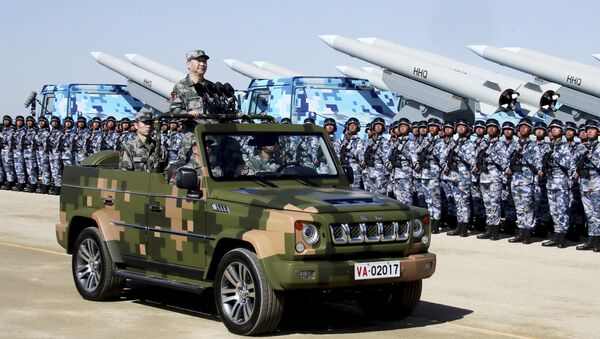"I think China is the main challenger to US national security over the next 50, 100 years," Milley told the Senate Armed Service Committee during his confirmation hearing to become chairman of the Joint Chiefs of Staff. "I think some historian in 2119 will look back at this century, write a book, [the] central theme of the story will be the relationship between the United States and China."
However, Milley was careful to note that "with respect to China, China is not an enemy. I want to make that clear. They are an adversary. I would say they're a competitor, but that's different than an enemy.”
"An enemy in my language, military language, means you're in an act of armed conflict, you're at war. We're not there. We don't want to be there. We want peace, not war, with China. But having said that, I think that the best way to do that is to make sure that we are prepared,” he said.
Milley noted the great advances in Chinese technology in recent years. "China is improving their military very, very rapidly — in space, air, cyber, maritime, land domains," he said. "They're outspending us in research and development and procurement ... We, the United States, need to make sure that we do not lose our advantages that we have relative to other countries, specifically relative to China."
"China went to school on us," Milley said. "They watched us very closely in the First Gulf War, Second Gulf War, watched our capabilities, and in many, many ways they have mimicked those, and they have adopted many of the doctrines and the organizations, et cetera."
That observation echoes a conclusion drawn by Robert Work and Greg Grant in a report at the Center for a New American Security published last month, which noted that Chinese strategists drew lessons from Operation Desert Storm on how to potentially fight a war against a technologically superior foe.
"A key lesson China took from the 1991 Desert Storm campaign was to strike hard and fast during war's earliest stages, as initiative once lost would be all but impossible to regain against an opponent capable of 24-hour, all-weather guided-munitions bombardment," the authors noted in their report.
As a consequence, Chinese strategists laid out an elaborate three-stage plan to match and supercede US military technological capabilities by the People’s Republic’s first centennial in 2049. The date is highly symbolic for the ruling Chinese Communist Party, as leader Mao Zedong said in 1949 that China’s “century of humiliation” at the hands of European and Japanese empires had ended and China had “stood up.” Beijing has also set 2049 as a socioeconomic target, aiming to become a “fully developed nation” and “a global leader in terms of comprehensive national power and international influence” by then.
Beginning in 2018, the Pentagon set about redirecting its energies away from the War on Terror it had been waging since 2001, primarily against irregular paramilitary forces and militias, and toward “inter-state strategic competition” with Russia and China - countries it’s variously described as “revisionist powers” seeking to upend the post-Cold War world order or “malign actors.”
The Pentagon’s Indo-Pacific Strategy Report similarly frets that China, "under the leadership of the Chinese Communist Party, seeks to reorder the region to its advantage by leveraging military modernization, influence operations, and predatory economics to coerce other nations,” with the aim of "undermin[ing] the international system from within by exploiting its benefits while simultaneously eroding the values and principles of the rules-based order."
Sputnik has previously reported how the core of the US trade war with China, as well as Trump’s incipient Space Force, is driven by Washington’s fears of coming Chinese technological supremacy, especially in the realm of artificial intelligence. China intends to become a world leader in AI by 2030.


